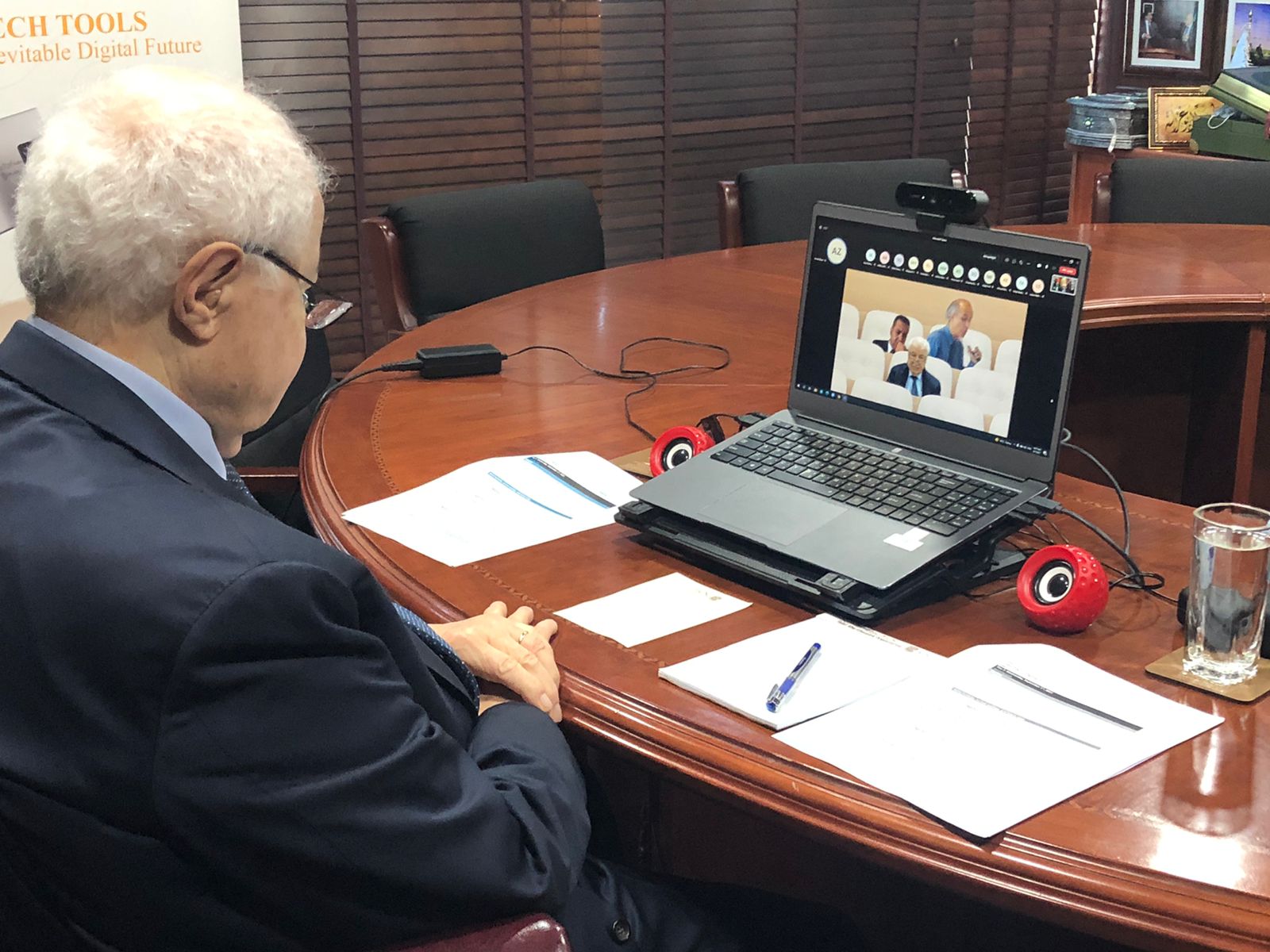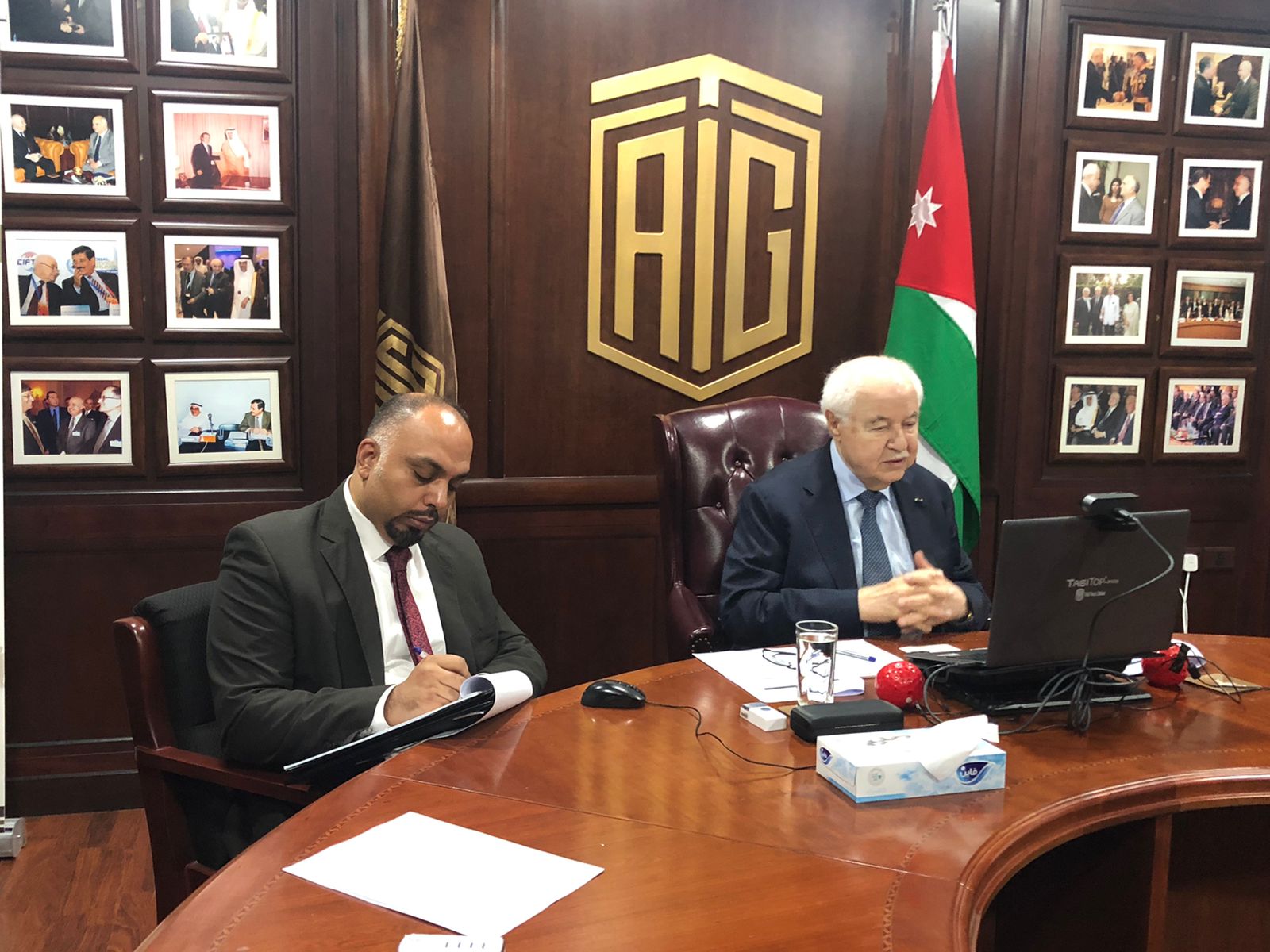Abu-Ghazaleh Delivers Keynote Speech at UN Habitat’s Regional Meeting
AMMAN – HE Dr. Talal Abu-Ghazaleh, founder and chairman of Talal Abu-Ghazaleh Global (TAG.Global), was the keynote speaker at the UN Habitat Regional Office for Arab States meeting, where he proudly commended the longstanding partnership between UN-Habitat and TAG.Global.
During his speech, he addressed a number of key issues including the ongoing COVID epidemic and the challenges it has caused forcing on everybody to learn how to live with it for years. He mentioned that although vaccines are available, a comprehensive solution to this issue will not come about until the two major world powers; USA and China; come together to establish a new world order. This will impose global discipline and bring together the fragmented efforts of individual countries to address this problem.
 Dr. Abu Ghazaleh further warned of the larger and the more alarming threat of climate change, which does not have a vaccine. It’s devastating effects, he said, have been witnessed globally, particularly in the USA. He added that one of Trump’s greatest campaign messages was a denial of this fact in order to gain support from industry leaders, and he withdrew from the 2015 Paris convention on climate change.
Dr. Abu Ghazaleh further warned of the larger and the more alarming threat of climate change, which does not have a vaccine. It’s devastating effects, he said, have been witnessed globally, particularly in the USA. He added that one of Trump’s greatest campaign messages was a denial of this fact in order to gain support from industry leaders, and he withdrew from the 2015 Paris convention on climate change.
Dr. Abu-Ghazaleh also recalled in 1995 when he served as Chair of the United Nations Intergovernmental Working Group of Experts on International Standards of Accounting and Reporting (UNISAR). The UN Secretary-General at the time, Mr. Boutros Ghali, entrusted him to develop and chair an international committee of experts to draft international accounting standards for environmental to monitor countries’ commitment to protect environment and climate from pollution.
He also indicated that after completing the drafting of the standards and their endorsement by representatives of the world’s accounting associations, they were rejected and terminated by the American and British ambassadors; recalling his hope at the time that the Secretary-General of the United Nations would reconsider their adoption.

Dr. Abu Ghazaleh recollected his role when in 1995 he was tasked by the UN Secretary Geneal Boutros Ghali, to develop standards for accountability targeting those whose industrial or any other activities harm our environment.
He added that you cannot manage what you cannot measure and that a system of accountability needs to be put in place that measures, controls and implements decisions as well as holds countries accountable to their harmful actions. He said that climate change is a reality and the environment is facing the possibility of irreparable damage.
He further mentioned that Arab economies should focus on developing sustainable practices by becoming self-sufficient in terms of food production and medication as well as focus on developing ICT based economies to serve the needs of the global digital economy.
He concluded by saying that UN Habitat’s future work should focus on three areas.
First: to develop a comprehensive set of guidelines and practices to help countries achieve sustainable development and encourage a sense of cooperation and knowledge sharing between them.
Second: to help countries to transform digitally. This will help them develop ICT based economies, provide greater employment opportunities and help reduce the already growing gap between the digital ‘haves and have nots’. He said the Arab region should not allow this gap to widen as ICT technologies offer many novel solutions to help build sustainable environments, of which artificial intelligence is an important part.
Third: The education sector in the region must be modernized to produce knowledge workers, and a vibrant ICT workforce which is essential to the future prosperity of the Arab world.
Dr. Abu Ghazaleh concluded by extending all of TAG.Global’s facilities to hold further meetings, sessions and workshops in order to help the UN Habitat act as a catalyst for change to develop standards and best practice guidelines in all these areas.